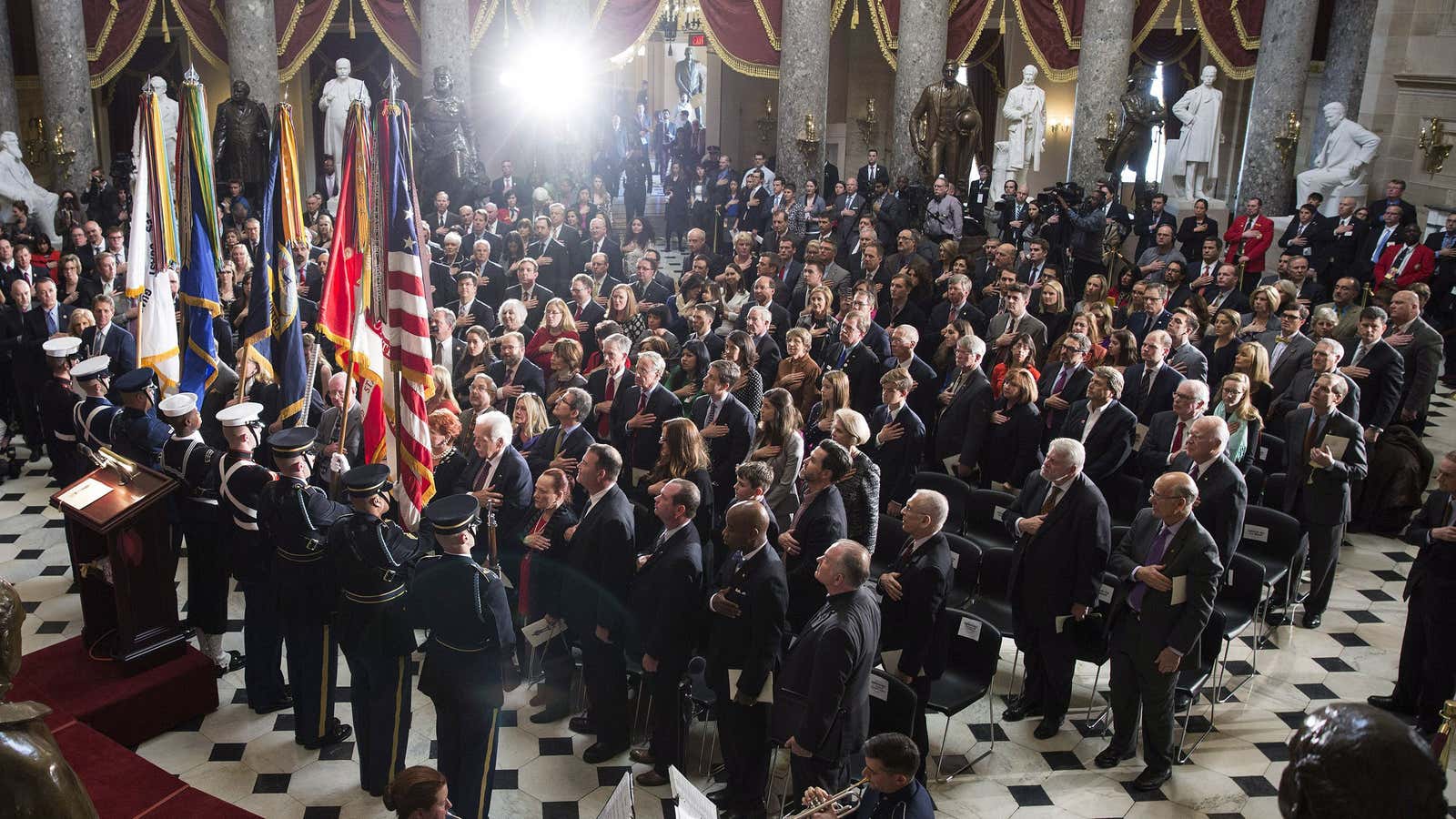Say you’re in the market for a new TV or some $800 sweatpants. Right now, if you live in most of the US, buying them at the nearby brick-and-mortar store means you have to pay state and local sales tax on them. But if you get them online from a shop in another state, one with no physical presence in your state, you don’t have to pay those taxes. Even if you’re paying for shipping, that option can be substantially cheaper.
To some, including a bipartisan group of US senators, that dynamic creates an unfair advantage for shops out of state and hurts local businesses. But a bill that has just been reintroduced to Congress aims to change that. The Marketplace Fairness Act would give states the authority to force sellers to collect tax from out-of-state buyers, and harmonize tax laws to make that process easier.
Both the supporters and opponents of the bill say they’re looking out for small businesses.
“The Marketplace Fairness Act is about supporting the jobs we have in our towns,” said US Senator Mike Enzi, a Republican from Wyoming, in a statement. “Right now, thousands of local businesses are forced to do business at a competitive disadvantage because they have to collect sales and use taxes and remote sellers do not.”
Other proponents include a broad base of Congressional members, including leading supporters senators Dick Durbin (D-IL) and Lamar Alexander (R-TN), Amazon, Best Buy, Gap, and the editorial board of the Washington Post.
While it may seem counterintuitive for retailers with big online businesses to support the bill, many of the larger chains have physical stores across the country already, so they already have to charge sales tax. (It also started to seem like a losing battle to fight the tax, even for heavyweights like Amazon.)
Opponents of the bill, including several House Republicans, House speaker John Boehner among them, along with conservative political advocacy groups and coalitions of online retailers, see the bill as a threat to small businesses that depend on online sales for their livelihood. They contend that it would place a huge burden on small businesses required to remit taxes to thousands of jurisdictions where customers are making purchases; the logistics and costs involved would be overwhelming. (Quartz has contacted Senator Dick Durbin and House speaker Boehner for comment and will update with any response.)
NetChoice, an association of e-commerce businesses, has been among the more vocal of the bunch. In a Forbes editorial, its executive director Steve DelBianco argued that the bill would ultimately make small retailers less competitive, not more.
“While big box stores love that proposal—and devoted massive resources to pushing it through Congress—small Internet sellers and their customers rightly worried that it would make it even harder for them to compete with national chains and online giants,” he wrote.
In other words, the bill’s supporters say it will level the playing field between big and small retailers; opponents say the small ones will just get buried.
For the states and consumers involved, there’s a lot at stake. A big chunk of the 200 million online shoppers in the US, which amounts to more than 60% of the population, would have to start paying sales tax for out-of-state purchases. Estimates of how much money in sales tax that amounts to vary, but according to the National Conference of State Legislatures, a bi-partisan non-profit that serves the staff of US state legislatures, states missed out on collecting about $23 billion in 2012.
